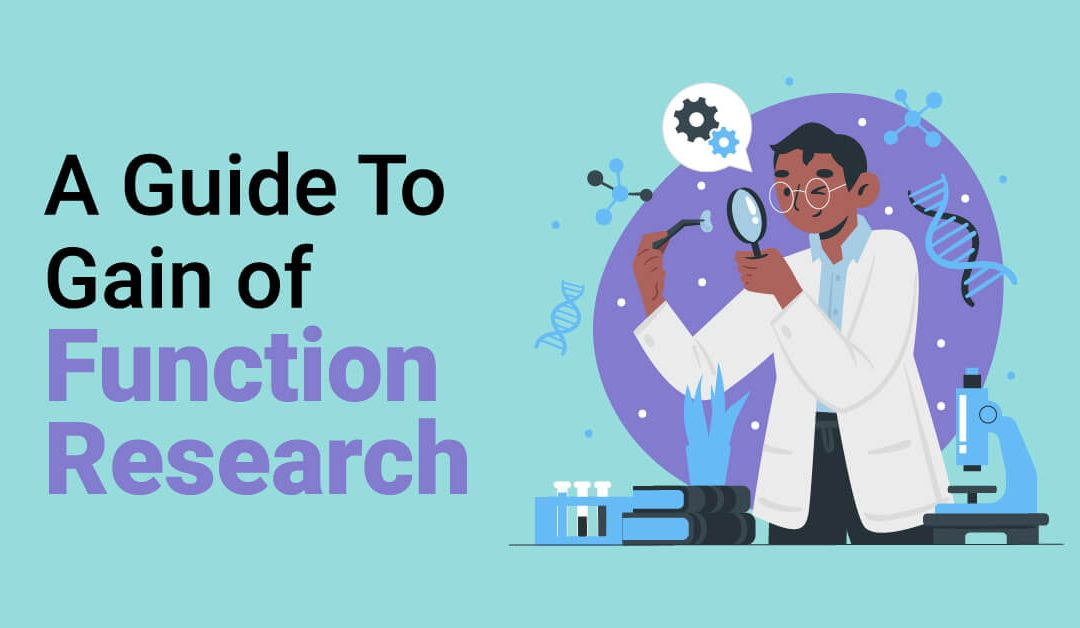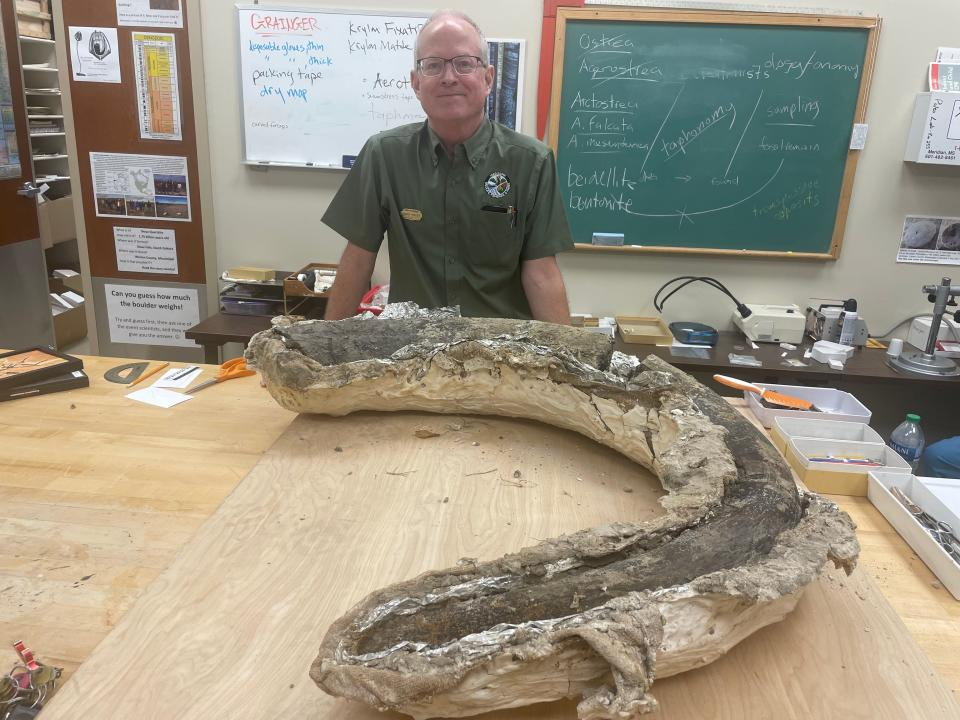Gain-of-function research has been a hot topic in virology and public health debates, especially amid the COVID-19 origins scrutiny that has captivated global attention. This research focuses on understanding how pathogens can evolve and potentially become more dangerous through controlled laboratory experiments. Following President Trump’s executive order to limit federal funding for such studies, concerns have arisen regarding biological research safety and its implications for public health. The controversial nature of virus mutation studies and the associated lab leak theory have ignited fears about the risks involved. As scientists continue to explore these critical areas, the ongoing dialogue reflects the need for a balance between innovation and safety in the realms of infectious disease research.
Also known as pathogen enhancement studies, gain-of-function research delves deep into the mechanics of viruses and how they can adapt to become more virulent. This specialized area of biochemical research raises significant concerns regarding the implications for global health, particularly in light of the ongoing COVID-19 pandemic. As discussions unfold, alternative terminologies such as viral enhancement and experimental pathogen research have emerged, reflecting the complexity of the topic. This scientific exploration, while aimed at fostering preemptive measures against potential outbreaks, often stands at the crossroads of ethical considerations and public safety debates. The complexities inherent in these studies reveal the delicate balance researchers must maintain as they navigate the intersection of innovation and risk.
The Impact of Trump’s Executive Order on Gain-of-Function Research
On Monday, President Trump signed an executive order that dramatically changes the landscape of federal funding for gain-of-function research. This type of research, which investigates how pathogens can evolve and potentially become more dangerous, has long been a point of contention among scientists and bioethicists alike. The order is significant not only because it seeks to limit funding but also because it reflects a broader concern regarding biological research safety, particularly in light of debates surrounding COVID-19 origins. In a press statement, Trump emphasized the need for stricter regulations on how federal money is spent in the realm of biological sciences.
Additionally, the initiative aims to enhance oversight of existing research that falls outside federal funding. The Order tasks the Office of Science and Technology Policy with collaboration across agencies to devise new guidelines, which is essential in promoting biological research safety. This is especially critical considering past instances of laboratory mishaps, such as the anthrax incident at the CDC, which heightened fears around gain-of-function experiments. By addressing these potential risks, the executive order seeks to safeguard against future public health crises while navigating the intricate balance between advancing scientific knowledge and ensuring public safety.
The Lab Leak Theory and Its Controversies
The lab leak theory concerning the origins of COVID-19 continues to spark heated debates among scientists and policymakers alike. Promoted prominently by figures within the Trump administration, the theory suggests that the virus originated from a laboratory accident in Wuhan, China. Trump and health officials argued that had appropriate safety protocols been in place, the emergence of the virus might have been prevented. This narrative, however, faces significant opposition from the scientific community, many of whom assert that genetic studies and evolutionary analysis point towards a natural origin of the virus rather than a man-made one.
Even though some recent studies have fueled speculation around the lab leak theory, the consensus among virologists tends to lean against it. A study released in February indicated that many scientists do not consider the lab leak to be the most plausible explanation for the COVID-19 outbreak. This divergence between public rhetoric and scientific evidence further complicates discussions around gain-of-function research and biological safety. As ongoing investigations continue to unravel the mysteries surrounding COVID-19 origins, it is crucial to remain grounded in scientific fact rather than conjecture or political motivations.
Gain-of-Function Research: Understanding the Risks and Benefits
Gain-of-function research is a vital area of study, particularly for developing preventive measures against emerging pathogens. By understanding how viruses mutate, scientists can work on creating early vaccines that may be effective before a pathogen spreads widely in humans. Patrick Moore, a prominent virologist, noted that nature often mimics the types of mutations that are explored in these studies, emphasizing that the research can reveal critical insights into viral behavior. Such knowledge can be instrumental during outbreaks, enabling researchers to respond swiftly with targeted solutions.
However, the inherent risks associated with gain-of-function research are substantial. The potential for accidental releases of engineered pathogens raises ethical questions about the safety of conducting such experiments. Following several notable breaches, including instances involving deadly microbes, previous administrations have imposed funding restrictions and moratoriums on such research. The ongoing debate asserts that although there are undeniable advantages to understanding pathogen mutation, it is essential to ensure that biological research safety takes precedence to prevent future pandemics.
The Role of Federal Regulations in Biological Research
Federal regulations play a pivotal role in ensuring the safety and ethical conduct of biological research, particularly concerning gain-of-function studies. The executive order signed by Trump mandates a reevaluation of current oversight mechanisms, pushing for stricter guidelines around funding and safety protocols. The goal is to prevent lapses that could lead to public health crises, as has been suggested with the recent COVID-19 pandemic. The proactive stance taken by this executive order is aimed at fostering a more responsible approach to biological research.
This focus on regulations reflects lessons learned from past incidents, including mishaps that occurred during gain-of-function studies. By mandating enhanced scrutiny over research practices, federal agencies can work towards minimizing the risks associated with such complex scientific endeavors. Implementing robust safety measures ensures that researchers can pursue critical investigations without compromising public health or safety.
Echoes of Past Controversies in Current Pandemic Responses
The recent executive order echoes a history of controversies surrounding biological research, particularly in the context of pandemics. Past incidents of lab mishaps, combined with the current environment of skepticism regarding the origins of COVID-19, have influenced how federal policies are shaped. The discussions around gain-of-function research are often intertwined with public fear and speculation, making it essential for policymakers to navigate these waters carefully. Trump’s administration’s approach exemplifies how previous debates continue to resonate in today’s policy decisions.
Moreover, the injection of political rhetoric into scientific discussions can undermine the credibility of public health responses. Strong claims about the lab leak theory, often framed in conspiracy-like narratives, detract from evidence-based discussions on virus mutation studies and research safety protocols. This cycle of politicization poses significant challenges to public trust and can impede genuine scientific inquiry into the factors that contribute to pandemics.
Navigating Scientific Jargon in Public Discourse
One key challenge surrounding discussions about gain-of-function research and related topics is the use of scientific jargon that can alienate the general public. As evidenced by the dialogue surrounding COVID-19 origins, complex terms and theories can create confusion, leading to misinterpretations and the proliferation of misinformation. Consequently, it is crucial for scientists and health officials to communicate their findings in a way that is accessible to non-experts without compromising the integrity of the research.
Educating the public on scientific processes, including how pathogen research is conducted, can foster a greater understanding of the implications of gain-of-function studies. Simplifying the language used in communications can help demystify the often complex and technical aspects of biological research. This approach not only assists in enhancing public comprehension but also strengthens the overall trust in scientific institutions and their findings.
The Interplay of Science, Politics, and Public Perception
The interplay between science and politics plays a critical role in shaping public perception, particularly regarding health crises like the COVID-19 pandemic. The executive order on gain-of-function research exemplifies how political motivations can influence scientific discourse and lead to decisive policy changes. The framing of COVID-19 origins within a political narrative has significant ramifications for the scientific community, which strives for objectivity amid a charged atmosphere.
As political leaders assert their narratives about virus origins and research safety, it becomes essential to preserve scientific integrity and ensure that data guide policymaking rather than conjecture. Public trust hinges on the ability of scientists to remain grounded in evidence while engaging with legislative processes. Building a bridge between scientific inquiry and political discourse can foster more informed decision-making and enhance the legacy of scientific research in public health.
Ethics and Accountability in Biological Research
In light of the executive order limiting gain-of-function research funding, ethical considerations surrounding biological research have come to the forefront. As researchers explore the boundaries of science, questions about accountability and the moral implications of manipulating pathogens must be addressed. The history of past incidents serves as a reminder that ethical lapses can have dire consequences for public health, reinforcing the need for stringent regulations and transparency in research practices.
Responses to the ongoing pandemic reveal a growing demand for accountability within the scientific community, particularly in how research is conducted and reported. Scientists are increasingly being held responsible for the societal impacts of their work, and this trend may shape future regulations for gain-of-function research. Establishing ethical guidelines and ensuring that research is conducted responsibly can help mitigate risks while preserving the valuable insights that such research offers.
Future Perspectives on Gain-of-Function Research and Policy
The discussions around gain-of-function research and its implications for future pandemics are just beginning. As scientific understanding progresses and public health challenges continue to arise, policymakers must remain vigilant in balancing innovation with safety. The recent executive order highlights a shift towards more cautious approaches to funding and oversight, emphasizing the need for a comprehensive framework that can adapt to evolving scientific knowledge and emerging threats.
Future research policies must consider the benefits of gain-of-function studies while addressing legitimate safety concerns. This will require a collaborative approach that includes the input of scientists, ethicists, and public health officials. By fostering an environment where rigorous research can occur safely, we might better prepare for the next wave of infectious diseases while also maintaining the public’s trust in the scientific community.
Frequently Asked Questions
What is gain-of-function research and why is it controversial?
Gain-of-function research involves experiments that enhance the pathogenic properties of viruses, making them more harmful through mutations. This research is controversial due to potential biosecurity risks, highlighted by incidents such as the anthrax and bird flu breaches, which have raised fears about laboratory accidents and the safety of biological research.
How does the Trump executive order impact gain-of-function research?
The Trump executive order aims to limit federal funding for gain-of-function research, mandating the Director of the Office of Science and Technology Policy to develop guidelines to halt such studies. This reflects ongoing concerns regarding the safety and security of biological research, particularly in the wake of the COVID-19 pandemic.
Is the lab leak theory associated with gain-of-function research credible?
The lab leak theory, which suggests that COVID-19 may have originated from a laboratory conducting gain-of-function research, remains a contentious topic. While advocates of this theory point to the origins of COVID-19, recent studies indicate that most virologists do not support this narrative, considering natural emergence as more plausible.
What are the potential benefits and risks of gain-of-function research?
Gain-of-function research can lead to significant public health benefits, such as improving early vaccine development strategies by understanding how viruses mutate. However, the associated risks include the potential for accidental releases of enhanced pathogens, which can pose serious public health threats.
How did past U.S. administrations view gain-of-function research?
The Obama administration imposed a moratorium on gain-of-function research funding in 2014 due to safety concerns. This ban was lifted by the NIH in 2017 during the Trump administration, which signaled a shift toward more permissive research policies amid debates about the safety of biological research.
What role does public opinion play in funding for gain-of-function research?
Public opinion can significantly impact funding for gain-of-function research. Heightened concerns about biosecurity and the origins of pandemics, such as COVID-19, can lead to calls for tighter regulations or funding restrictions, reflecting a societal demand for enhanced biological research safety.
How has gain-of-function research been reported in scientific literature?
Much of the scientific literature, such as a 2012 Nature study, has explored gain-of-function research methodologies and findings. While this research is crucial for understanding viral dynamics, it often faces scrutiny and debate over safety protocols and ethical considerations in publishing such studies.
What future regulations are expected for gain-of-function research following the executive order?
Following the Trump executive order, it is expected that federal agencies will collaborate to establish stricter regulations and oversight on gain-of-function research. This includes monitoring privately funded research and possibly restricting methodologies deemed too risky.
| Key Points | Details |
|---|---|
| Executive Order | President Trump signed an order to limit federal funding for gain-of-function research. |
| Date and Location | The order was signed on a Monday in the Oval Office. |
| Primary Focus | The order aims to halt federal funding for research that mutates pathogens to understand their harmful effects. |
| Background Context | The current executive order follows controversy over the lab leak theory regarding COVID-19’s origins. |
| Controversial Claims | Health officials presented the lab leak theory as a consensus despite contradictory scientific studies. |
| Historical Context | Funding for gain-of-function research was halted in 2014 by Obama but lifted in 2017. |
| Scientific Perspectives | Though gain-of-function research holds potential for vaccine development, it is seen as risky. |
| Ongoing Debate | Studies suggest natural origins for COVID-19 over the lab leak theory, highlighting divided views. |
Summary
Gain-of-function research has become a focal point of debate surrounding public health and biosecurity. The recent executive order by President Trump reflects the government’s efforts to limit such research amid concerns over mutant pathogens. While there are significant benefits to understanding viral mutations for vaccine development, the potential risks cannot be overlooked. Current scientific discourse suggests that COVID-19 may not have originated from a lab leak, highlighting the need for a careful and evidence-based approach to gain-of-function research.



